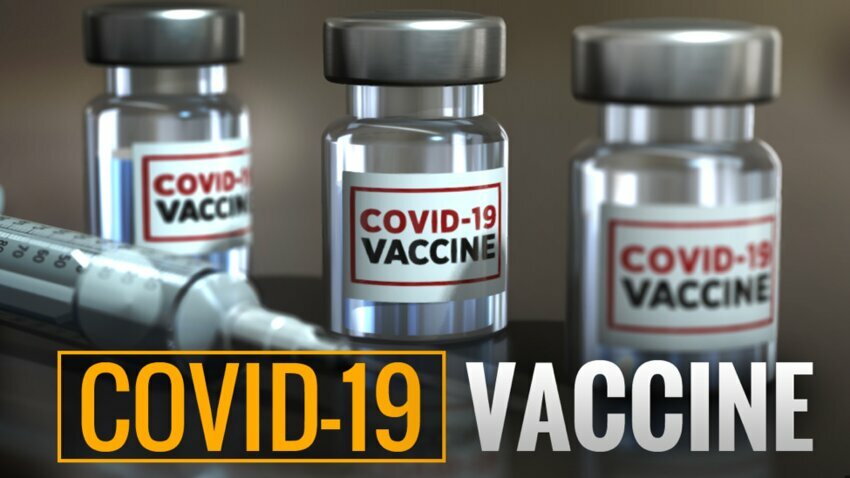Updated COVID-19 Vaccine Now Available
After a tough summer of spiking COVID-19 cases, an updated COVID-19 vaccine is now available in most pharmacies and doctors’ offices.
The U.S. Centers for Disease Control and Prevention recommends everyone ages 6 months and older receive an updated 2024-2025 COVID-19 vaccine to protect against the potentially serious outcomes of the disease. This recommendation applies whether someone has ever previously been vaccinated with a COVID-19 vaccine.
The new vaccine is important because the virus that causes COVID-19 – SARS-CoV-2 – has evolved genetically. The 2024-25 vaccine is designed to fight the KP.2 variant of the JN.1 lineage. KP.2 is the most common variant in circulation currently, while previous vaccines in use this year have targeted the Omicron variants.
The new vaccine can restore and enhance protection against the virus even if you have had previous COVID-19 vaccines or boosters, says Dr. Rich Westenbarger, an emergency room physician at Baptist Medical Center Nassau.
“Even if you were protected before, there are a couple of reasons why the new vaccine would be good to have,” he says. “Like the flu, as the seasons change, the virus changes and mutates. While somebody may have had COVID-19 or the vaccine in the past, there is enough change in mutations in the virus that you can be infected and, in some people, have pretty significant and severe symptoms.”
Moreover, he says “the immunity you develop from previous vaccinations begins to wane over time, and you don’t have quite the same immune response” to protect against serious illness.
Although Americans are undoubtedly weary of hearing about COVID-19, the virus remains extremely problematic. According to the CDC, more than 916,000 Americans were hospitalized due to COVID-19 in 2023. COVID-19 cases spiked locally this summer, Westenbarger says.
“It hasn’t followed a typical flu pattern,” he says. “We’ve had winter spikes and summer spikes. It seems like seven or eight spikes since 2020.”
Americans remain reticent about vaccination, however, despite ample scientific evidence that the vaccine is safe. Among people who have been hospitalized for COVID-19 complications over the past year, only 11% had received the most recent vaccine. Overall, according to the CDC, only 22% of American adults received the latest COVID-19 vaccine (prior to this fall’s new vaccine). Only about 14% of eligible children received the 2023-24 vaccine.
“I think there is some fatigue that sets in,” Westenbarger says. “There was some confusion about the messaging in the beginning. People who did get the vaccine still got COVID-19, and they didn’t understand why they got it. Part of the reason to get the vaccine is to decrease the severity of the illness. But that may have been frustrating and less motivating.”
While the vaccine doesn’t stop someone from getting infected with COVID-19, it dramatically reduces the risk of serious complications, hospitalizations, and death, including the chronic disorder known as long COVID-19. An estimated 17 million American adults have long COVID-19, according to the Kaiser Family Foundation.
The CDC recommends the COVID-19 booster aimed at the KP.2 variant for most people this fall as well as an additional booster shot for older adults next spring. That is the same recommendation as was issued for the 2023-24 season. People who are immunocompromised should consult with their physicians to determine the need for booster doses.
Individuals who have recently had COVID-19 can consider delaying vaccination by three months, according to the CDC advisory.
Updated COVID-19 vaccines will be available from Moderna, Novavax and Pfizer. It’s safe to receive a flu and COVID-19 vaccines together, CDC experts note. Pharmaceutical companies are working to develop a combination flu and COVID-19 vaccine, but there is no such product available yet, Westenbarger says.
Since their inception, the COVID-19 vaccines have proven safe. According to the CDC, hundreds of millions of people have received the vaccine without harm. COVID-19 vaccines are issued “under the most intense vaccine safety monitoring in United States history,” the CDC notes.
The vaccine is associated with mild adverse reactions, such as soreness at the injection site as well as short-term fever, headache and body aches. But misinformation on social media may lead people to believe the vaccine carries some serious risks. The scientific data do not support that, Westenbarger says.
“The data doesn’t show that. If anyone would see [adverse effects], it would be us in the emergency room,” he says. “We don’t see illness related to the vaccine. We see illness related to COVID infection.”
The COVID-19 vaccine recommendations issued by the federal government stand in contrast to opinions from Florida state public health authorities. In December 2023, the state Surgeon General Joseph A. Ladapo has questioned the U.S. Food and Drug Administration regarding the vaccine safety. Dr. Ladapo has previously advised against COVID-19 vaccination for children, young men and adults under age 65. National vaccine authorities have largely rejected Ladapo’s concerns, stating there is no scientific evidence to support his positions and calling his remarks “irresponsible.”
“Our top recommendation for protecting yourself and your loved ones from respiratory illness is to get vaccinated,” says CDC Director Dr. Mandy Cohen. “Make a plan now for you and your family to get both updated flu and COVID vaccines this fall, ahead of the respiratory virus season.”
Appointments for vaccines can be scheduled at most major pharmacies and at some doctors’ offices. Some pharmacies also offer vaccinations without an appointment. You can use the federal government website, Vaccines.Gov, to find a vaccination site. Veterans can contact Veterans facilities for appointments.
You no longer need to produce a COVID-19 vaccine card to receive a vaccine. The CDC no longer distributes the cards. A federal government program to pay for COVID-19 vaccines has expired. However most major insurance plans, as well as Medicare and Medicaid, cover the cost of vaccination.
Next week: An update on flu, RSV and pneumonia vaccines for the 2024-25 season.






